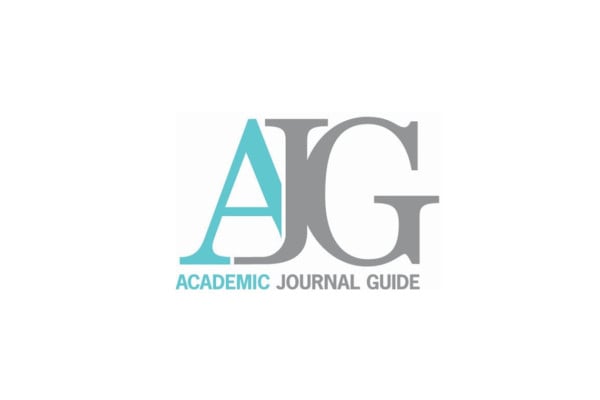
Chartered ABS appoints new co-editors for the Academic Journal Guide
The Chartered ABS has appointed Professors Dermot Breslin and Mehmet Demirbag as the new Co-Editors of the Academic Journal Guide. The Co-Editors will lead the production of the 2027 edition of the AJG and offer strategic guidance on how the Guide should continue to evolve and innovate in the years ahead.
- Home
- / Policy
- / Research and Funding
- / Chartered ABS analysis of NSS 2025 for Business & Management
Chartered ABS analysis of NSS 2025 for Business & Management

National Student Survey (NSS) 2025 results for Business and Management
The Chartered ABS is pleased to present our report on the results of the 2025 National Student Survey (NSS) for Business and Management subject area (CAH17), for the first time as interactive PowerBI dashboards. The dashboards allow users to refine the analysis by all levels of undergraduate study and users are also able to filter results by provider name, mission group, incorporation type and region of institution. This commentary will focus on full-time, first-degree undergraduates.
This year’s NSS for the Business and Management subject area saw an average of 54,914 responses with a 71.1% response rate, which is slightly below the response rate for the average of all subjects and the response rate for Business and Management for 2024, both recording a response rate of 73.2%.
Our report includes a comparison of the average positivity scores for each question for Business and Management with the average score for all subjects. We also offer a breakdown of the positivity scores for each question for all CAH3 subjects that fall under the umbrella of CAH1 Business and Management, this is also filterable by incorporation type, mission group, region of institution and provider. The second dashboard below provides a table with shaded cells to indicate performance variations from the Office for Students (OfS) benchmark These benchmarks are calculated uniquely for each provider and question, based on specific course and student characteristics – more detailed information about the benchmarking calculations is available here.
The NSS 2025 features 25 questions grouped into 7 themes, followed by additional optional questions, covering mental wellbeing services, freedom of expression, and overall satisfaction. The ‘freedom of expression’ question was only asked of students in England, and the ‘overall satisfaction' question only for students in Northern Ireland, Scotland and Wales.
CABS Dashboard of NSS 2025 for Business and Management
Explore more seeing all four dashboards
Click here to explore all four dashboards and read commentary:
https://charteredabs.org/policy/research/cabs-nss-business-and-management-report-2025
Business and Management Key Findings
Business and Management outperforms the all-subject average across five of the seven themes, with the most substantial differences observed in Organisation and Management (theme five) at 5.9 percentage points above average (the largest positive variation from Business & Management compared to all subjects for a second consecutive year), Assessment and Feedback (theme three) at 2 percentage points higher, and Student Voice (theme seven) exceeding by 1.7 percentage points. The performance gap in Organisation and Management has notably widened compared to 2024, when Business and Management exceeded the all-subject average by 4.8 percentage points (compared to out-performance of 5.9 percentage points in 2025), indicating a strengthening of the discipline's relative position in this area over the past year.
A higher proportion of Business and Management students have reported that they are finding that their feedback is acted upon than last year
In this year’s NSS results, the average positivity rating for question 24 (“How clear is it that students’ feedback on the course is acted on?”) was 4.2 percentage points higher than it was in 2024. This represents the largest year-on-year improvement on any question for the Business and Management subject area.
More Business and Management students are reporting that they are finding their course more stimulating than last year.
In this year’s NSS results, theme 1 – ‘Teaching on my course’, which includes questions 1 to 4 saw an increase in its average positivity rating from 83.2% to 84.6%. As was the case in 2024, the question with the largest negative disparity between the Business and Management subject area and the average of all subjects, came from question 3 – “How often is the course intellectually stimulating?” with the negative difference against the all-subject benchmark amounting to 5%. It should be noted that the average positivity score for question 3 for Business and Management saw a 1.2 percentage point increase from 2024 to 2025, with the gap between Business and Management and All subjects shrinking from 5.4% to 5%, showing some signs of catching up with the average.
NSS 2025: Performance by constituent subjects within Business and Management
Within dashboard 3 users are able to find a breakdown of the average positivity ratings by question, filterable by level of study, mission group, region and incorporation type of the constituent subject areas (CAH-3) within Business and Management (CAH-1). This offers users a more detailed assessment of students’ satisfaction within courses belonging to the overall CAH-1 Business and Management subject area. Further improvements upon last year’s CABS NSS 2024 Business and Management analysis, as the PowerBI dashboards allow a further customisable experience, with the ability to filter by 4 different metrics.
As was the case in previous years, the CAH3 Subject – Others in Business and Management (which includes subjects such as Systems thinking; Office administration and Shorthand and Shorthand transcription) has the highest average rating of all themes (90%) and Marketing with the lowest of 83.2%. However, Others in Business and Management has the smallest raw number of responses from all CAH3 Business and Management subjects, so this should be considered when analysing the results.
Interestingly, Finance, whose average positivity scores across all themes had dropped by 2 percentage points from 84% to 82% from 2023 to 2024 respectively, has since bounced back to 84% in 2025.
